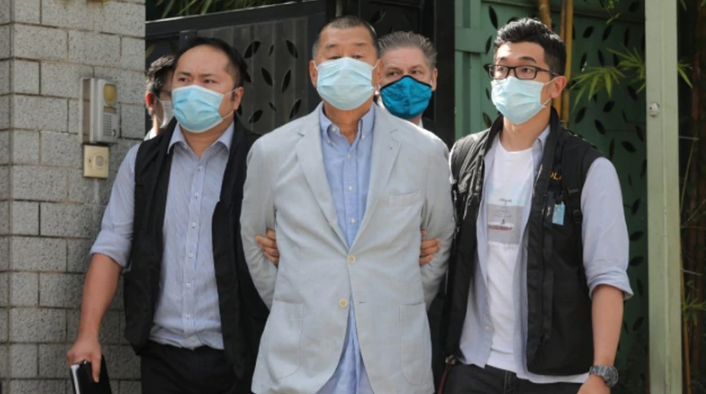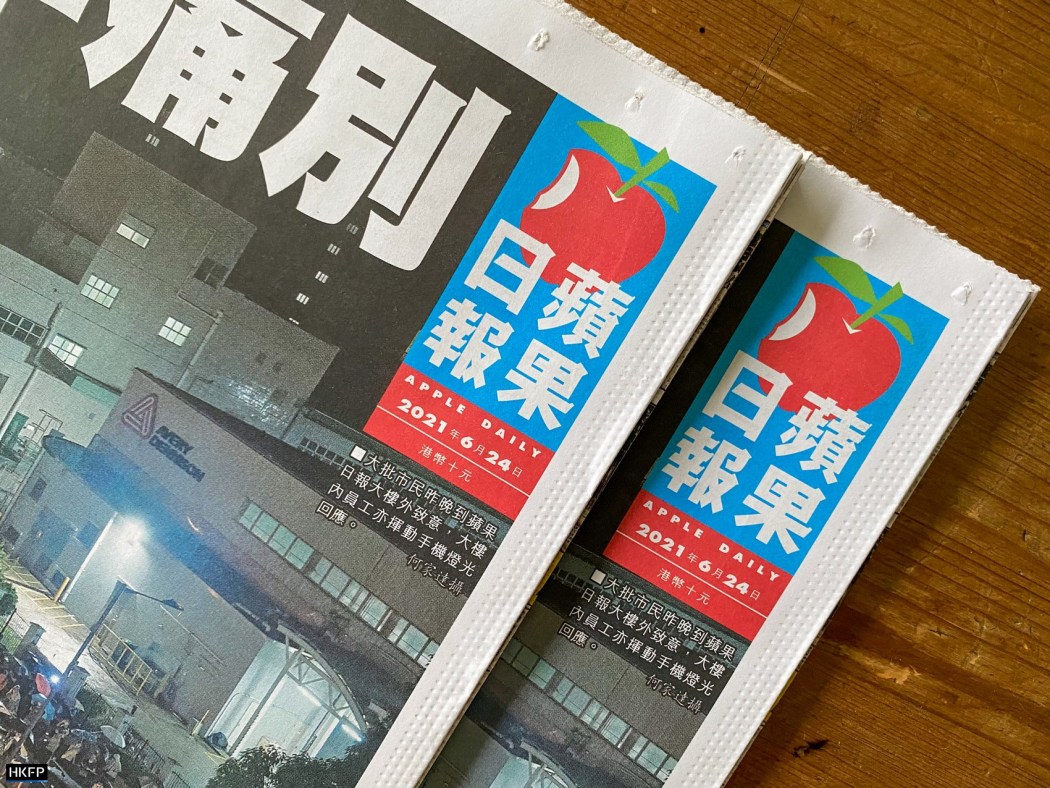Six former staff members of Hong Kong pro-democracy tabloid Apple Daily and its parent company Next Digital have pleaded guilty to a conspiracy to commit collusion charge in a landmark national security case.

Former CEO of Next Digital Cheung Kim-hung, Apple Daily’s former editor-in-chief Ryan Law, former associate publisher Chan Pui-man, former executive editor-in-chief Lam Man-chung, ex-editor-in-chief of the English news section Fung Wai-kong, and ex-editorial writer Yeung Ching-kee appeared at the High Court on Tuesday.
Their case was heard by a panel of three handpicked national security judges: Justices Esther Toh, Susana D’Almada Remedios, and Alex Lee.
The group pleaded guilty to conspiracy to commit collusion with a foreign country or with external elements to endanger national security.

They were accused of conspiring with Apple Daily founder Jimmy Lai, and three companies linked with the defunct newspaper – Apple Daily Limited, Apple Daily Printing Limited, and AD Internet Limited.
The prosecution, led by Anthony Chau on Tuesday, said that some defendants will testify in the upcoming trial against Lai, which is set to begin next Thursday.
‘Planning meetings’
According to the summary of facts read out in court, Apple Daily was used as a platform to publish news or “content purporting to be news articles,” commentary articles, and footages.
The prosecution listed at least 161 items of “impugned content” published since April 1, 2019, which they said had the objective to “sway public opinion” by making seditious statements against the central and Hong Kong governments and calling for the public to participate in protests.
Some articles published also contained requests for “external elements” to “impose sanctions or blockage, or engage in nother hostile activities against the PRC or the HKSAR,” the prosecution’s case read.
The national security law was enacted in June 2020. The colonial-era sedition law, which was last amended in the 1970s, remained dormant until after the implementation of the security law.

Cheung, Chan, Law, Lam, and Yeung also took part in “lunchbox meetings” with the media tycoon, the prosecution said, “to discuss and give instructions and directions as to the policy of the publication with the use of Apple Daily as platform.”
Chan, Law, and Lam were also said have held “planning meetings” on Tuesdays with the other team heads to discuss topics or events to be covered, the prosecution said.
Cheung’s representative indicated that the ex-CEO of Next Digital will testify in court. Mitigation submissions and sentencing of the six will be handled after Lai’s trial.
The group has been remanded in custody for over a year since they were first brought to court in June and July last year.
Apple Daily demise
Pro-democracy tabloid Apple Daily released its final edition on June 24, 2021, just days after hundreds of police officers raided its newsroom and senior executives were arrested. It was the first case in which authorities cited media articles as potentially violating the national security law.

It was the second time in 10 months that the newspaper, founded by Jimmy Lai, had been raided. Police said the warrant used in June 2021 was issued under the security legislation, and gave them power to search for and seize journalistic material.
The closure of Apple Daily was seen as dealing a significant blow to Hong Kong’s press freedom, with international media rights group Reporters Without Borders decrying “a crackdown on independent media” in Hong Kong under the national security law.
See also: The decline of Hong Kong’s press freedom under the national security law
Lai, 74, has been detained in custody since December 2020. He faces three charges under the Beijing-imposed national security law related to “collusion with foreign forces,” as well as one charge under the colonial-era sedition legislation. The maximum penalty under the security legislation is life imprisonment.
In June 2020, Beijing inserted national security legislation directly into Hong Kong’s mini-constitution – bypassing the local legislature – following a year of pro-democracy protests and unrest. It criminalised subversion, secession, collusion with foreign forces and terrorist acts, which were broadly defined to include disruption to transport and other infrastructure.
The move gave police sweeping new powers, alarming democrats, civil society groups and trade partners, as such laws have been used broadly to silence and punish dissidents in China. However, the authorities say it has restored stability and peace to the city.
Support HKFP | Policies & Ethics | Error/typo? | Contact Us | Newsletter | Transparency & Annual Report | Apps
Help safeguard press freedom & keep HKFP free for all readers by supporting our team























